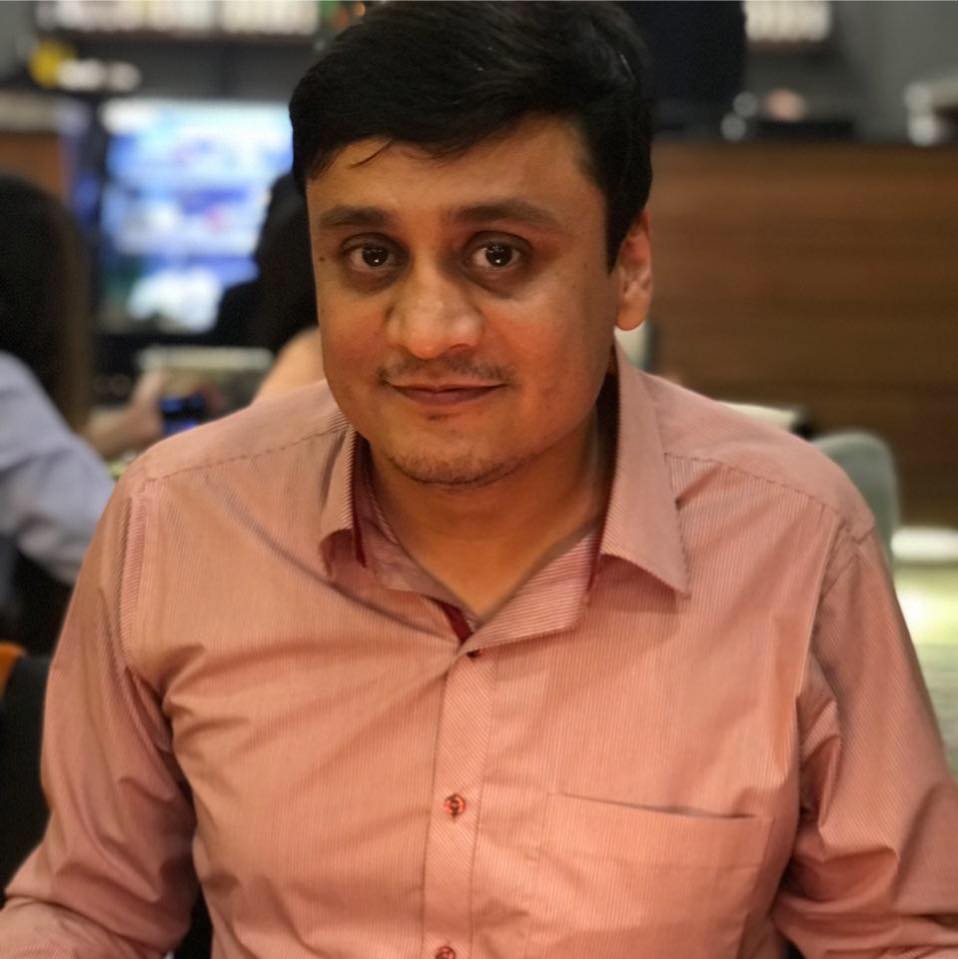
Dr. Ali Nasir went from being a self-professed “school runaway” to a Fulbright grantee at University of Michigan – Ann Arbor
1. USEFP is very proud to claim you as one of its Fulbright alumni. Can you tell us what led you to apply to the Fulbright program?
I heard about the Fulbright program through a colleague at Pakistan Space and Upper Atmosphere Research Commission (SUPARCO). At the time, I was looking for scholarship opportunities to study abroad, because my job required advanced research skills. However, I did not think I had any chance of getting the Fulbright scholarship. My schooling was from a small city of Kasur and I did not have any gold medals or distinctions that would make me stand out. But my colleagues encouraged me to apply and told me that it was better to apply and not get it rather than to not apply at all.
When I got my call for an interview from USEFP, I was pleasantly surprised, but still did not believe that I would get the scholarship. Then on 20th December 2006, contrary to my expectations, and to my utter surprise, I received what was a life-changing offer letter from USEFP.
2. You have come a long way from being a self-professed “school run-away” to the head of department at University of Central Punjab (UCP). How was your academic experience at University of Michigan – Ann Arbor?
Looking back at my life, it is sometimes hard to believe how far I’ve come and who I have become, given who I used to be. My academic experience at the University of Michigan has been a character defining one. Before Michigan, education for me used to be a way to enable earning in life but after Michigan, education for me is a way to enable learning in life, and the earning comes as an added benefit. It was at the University of Michigan that I learnt the value of knowledge and skill. The University of Michigan is a place where every day, everyone is striving to improve their skillset and acquire more knowledge. Even world-renowned and celebrated professors work 50 to 60 hours per week to learn more and try to improve their skills while teaching classes and managing research groups. My experience at Michigan has truly transformed my thinking and completely altered my vision and mission in life.
3. Can you share a memory that stands out in your Fulbright journey?
There are many profound memories from my Fulbright journey including road trips, conferences, renaissance fairs, movie nights, super bowl parties, thanksgiving dinners, and what not. But a memory that stands out is the story of the squirrel and the spacecraft. My PhD supervisor, Dr. Ella Atkins, used to engage her research group in technical writing activities. We would gather in a meeting room and she would give us about 20 minutes to write a few paragraphs on our ongoing research work. I was working on fault tolerant control in spacecrafts at the time, but on that particular day, I was not feeling up to writing a technical description. So, instead I ended up writing a dramatic story about a low earth orbit satellite that was in love with a squirrel. I was afraid that Dr. Atkins would not be happy with what I had done, but to my surprise, she not only liked my story but also hung it outside her office for the following week. I must also mention here that although my pseudo-technical story was a hit, the culture of our technical writing sessions remained strictly technical afterwards.
4. What are your future aspirations?
I have chosen the path of teaching and research and I know that there is so much out there that I do not know. My life is dedicated to seeking and sharing knowledge, but secretly I hope that before I am done with my life (or my life is done with me), I will discover one important principle, develop one algorithm, or invent one device that could bring significant positive change in the world. Along the way, I also want to inspire and help many more aspiring scientists in Pakistan.
5. Any advice for returning Fulbright candidates who want to become positive agents of change like yourself?
For the returning Fulbright grantees, I want to say that there is a long road ahead of you. First and foremost, establish yourselves and prove your skills. This process will take years of persistent hard work and dedication. But I promise you that once you get through the difficult part, people will come to believe in your abilities. That would be the time to start helping others. Then you will become the real agent of change.
Another advice is to stay connected with fellow alumni. We all have different journeys, but our goals are common. We all want to help our country become a better place for all the native communities to thrive. We are stronger when we are part of something bigger than ourselves and it helps us in achieving our goals. Staying connected helps you in staying persistent and serves as a way to continuously revive your determination.
The interview has been lightly edited for clarity and length.